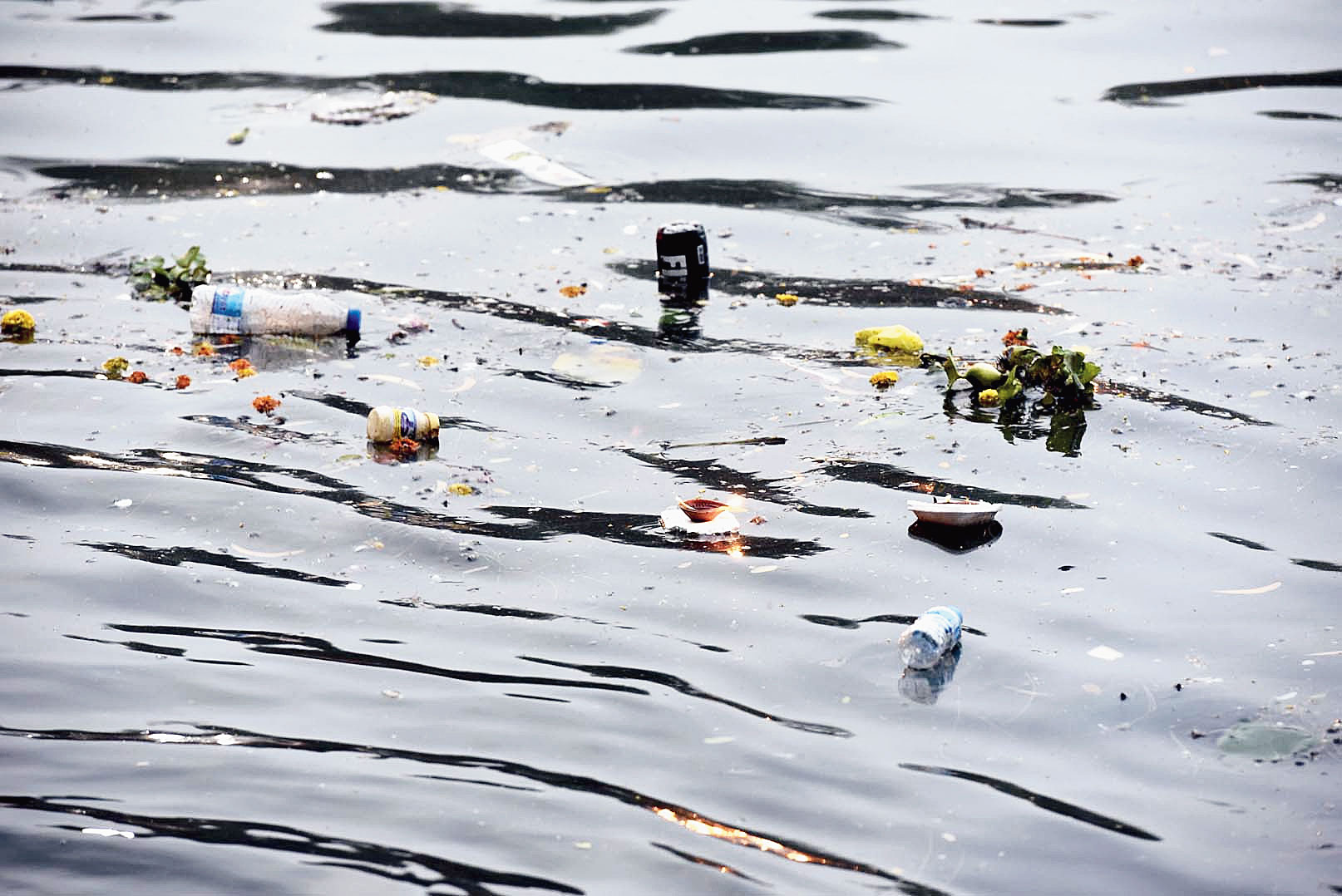The National Green Tribunal’s order prohibiting puja rituals at Rabindra Sarobar was flouted for the second consecutive day as a procession of Chhath devotees gathered before dawn and took turns entering the water to make offerings and release earthen lamps placed on thermocol rafts.
As was the case on Tuesday, a police contingent was stationed outside the entrance and along the lake, albeit only as spectators.
The size of the morning gathering appeared larger than on the first day of Chhath Puja, which environment activists blamed on the administration’s alleged encouragement of the mass-scale violation.
Metro highlights how the green tribunal’s effort to “protect” south Calcutta’s oasis in the middle of a concrete jungle turned into a farce in two acts.
Thermocol threat
Earthen lamps floating on pieces of thermocol lit up the waters of the lake before the first light of dawn, creating an atmosphere that might have gladdened the romantic’s heart but for the potential impact of this ritual on life underneath the surface.
Souryadeep Mukherjee, assistant professor of life sciences at Presidency University, said that thermocol pieces disintegrating into tinier fragments after being in water for some time could affect fishes in the lake. “With time, wet thermocol breaks up into smaller pieces and these can enter the gills of fishes and cause respiratory problems,” he told Metro.
Oil spill from lamps
Scores of earthen lamps were left floating in the lake, some of them toppling over to create a film of oil on the surface of the water. Oil residue is a threat to any water body with aquatic life. “Oil forms a layer and this stops the exchange of oxygen between water and atmosphere. Once the gaseous exchange is affected, the consequences can be disastrous,” an environmentalist said.
Flower-bedecked mess
As devotees started leaving and the sky brightened, the combined impact of so many people getting into the water for Chhath rituals became visible. Petals and garlands were strewn across a large portion of the lake, which Mukherjee said can have consequences. “Flowers are biodegradable but the microorganisms that help decompose them need oxygen for the process to happen, thereby increasing the biological oxygen demand. This results in dissolved oxygen decreasing rapidly, which can be fatal for aquatic life.”
Dissolved oxygen is the amount of gaseous oxygen in water. Biological oxygen demand is the amount of dissolved oxygen required by organisms that live in a water body.
Hurdle for rowers
Rajesh Agarwal, the captain of rowing at Bengal Rowing Club, said many of the devotees swam towards the middle of the lake on Wednesday morning. “Many of them came in the way of boats. Several of our rowers couldn’t take their boats out for practice.”
According to Agarwal, people swimming beyond a few metres from the edge of the lake risked serious accidents. “The oars that we use are hard and have sharp edges. If an oar in motion hits someone, it can cause a grievous injury. A sudden jerk can also topple a boat.”
Noisy firecrackers
Some of the visitors burst high-decibel fireworks without the police intervening once. Although the cacophony wasn’t continuous, several rounds of crackers going off shattered the morning calm. Besides polluting the ambient air, firecracker noise can scare away the many species of resident and migratory birds at Rabindra Sarobar.
The saving grace
The Calcutta Municipal Corporation and the Calcutta Metropolitan Development Authority, which is the custodian of Rabindra Sarobar, deployed more than 150 workers to pick up waste. They used nets to catch the flowers, bottles, thermocol and lamps floating in the water. A man in a boat collected the ones that got away from the middle.











